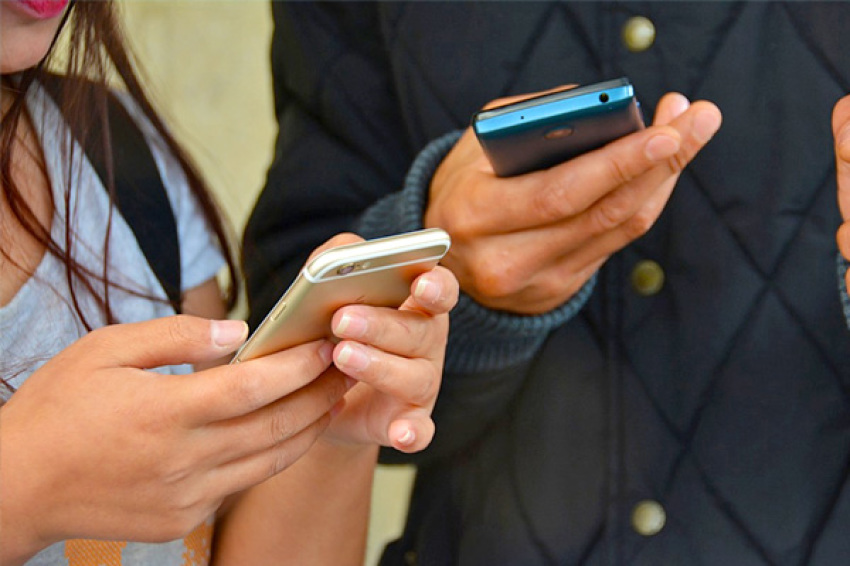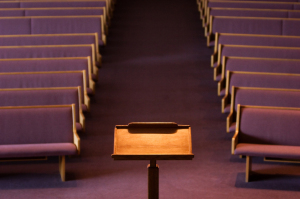Chronic smart phone scrolling linked to less sex, marital dissatisfaction even among churchgoers: study

Excessive smartphone use by a spouse has been linked to less sex and marital dissatisfaction, including among couples who attend church regularly, a new Institute for Family Studies report suggests. And researchers urge action to break the smartphone addiction among adults to fend off its potential threat to relationships.
"It is difficult to determine for certain whether excessive phone use is the culprit of marital problems, given that addiction to phones may be an indicator of an already-unhappy marriage," wrote authors Wendy Wang and Michael Toscano in the report published Wednesday titled "More Scrolling, More Marital Problems."
"Unhappy spouses might resort to using phones to escape and avoid communication with their partner. On the other hand, smartphones are engineered to be addictive."
Wang and Toscano say, "The most likely scenario is that marital difficulty and addiction to smartphones are reinforcing each other" and that "marital problems will be exacerbated to the breaking point and near impossible to address" unless smartphone addiction is addressed.
According to the data from an Institute of Family Studies/Wheatley Institute survey of 2,000 married couples ages 18 to 55, 37% of married Americans say that their spouse is often on the phone or some screen device when they would prefer to talk or do something together as a couple.
And the problem is even worse among younger couples and lower-income families.
About 44% of married couples under 35 said their spouse spends too much time on their phone compared with 34% of those aged 35-55. The smartphone addiction problem was only reported among 31% of higher-income couples compared with 44% of lower-income couples.
Married adults without a college degree (34%) were also more likely to say that their spouse spends too much time on their phone compared with those who are college-educated (39%).
"Husbands and wives are just as likely to feel left out because of their spouses' overuse of a smart phone. Liberals and conservatives are equally affected, as are those who attend church regularly and those who do not," the researchers added.
Wang and Toscano cited the work of Baylor University researchers James A. Roberts and Meredith E. David in their 2016 paper, "My life has become a major distraction from my cell phone: Partner phubbing and relationship satisfaction among romantic partners."
Roberts and David explore the concept of "partner phubbing (Pphubbing)," which "can be best understood as the extent to which an individual uses or is distracted by his/her cell phone while in the company of his/her relationship partner."
The 2016 study included an assessment of 145 adults, which showed that "Pphubbing's impact on relationship satisfaction is mediated by conflict over cell phone use."
"One's attachment style was found to moderate the Pphubbing-cell phone conflict relationship. Those with anxious attachment styles reported higher levels of cell phone conflict than those with less anxious attachment styles. Importantly, Pphubbing was found to indirectly impact depression through relationship satisfaction and ultimately life satisfaction."
Wang and Toscano also reported an apparent correlation between smartphone usage and marriage quality was significant.
Nearly six in 10 (59%) of married couples dealing with chronic smartphone usage reported that they are "very happy" with their marriage compared with 81% of couples who don't.
"Couples who experience phone distractions are about 70% less likely than other couples to be very happy with their marriage. Moreover, the odds of a future divorce perceived by these couples is four times higher than it is among couples who do not have a phone problem," Wang and Toscano wrote.
Data on smartphone addiction also suggests that it impacts couples' sex lives.
About 44% of couples struggling with a smartphone addiction reported having sex once a week or more, while 23% said they either haven't had sex at all in the last 12 months or have had it only once or twice.
"In contrast, the couples with greater control over their phones are more likely to report more frequent sex," Wang and Toscano wrote.
Couples struggling with a phone addiction are also less likely to go out on dates.
In light of their findings, the researchers urge couples to establish rules about the use of smartphones and voluntarily use basic phones. Social media companies are also being urged to re-design their platforms and remove their most addictive features like infinite scroll.
"A spouse spending more time on his or her phone will spend less time doing other things, such as reading a book, playing board games with the family, or connecting with family members. Addiction to smartphones crowds out the opportunity for couples to make time for one another," the researchers wrote. "Time spent intentionally together is especially critical for low-income marriages, as the extended networks of such couples tend to be in a precarious state. In such a brittle social environment, spouses bear a greater psychological and relational load. Therefore, addiction to a device is a recipe for failure and, as we have seen, divorce."
Contact: leonardo.blair@christianpost.com Follow Leonardo Blair on Twitter: @leoblair Follow Leonardo Blair on Facebook: LeoBlairChristianPost



























